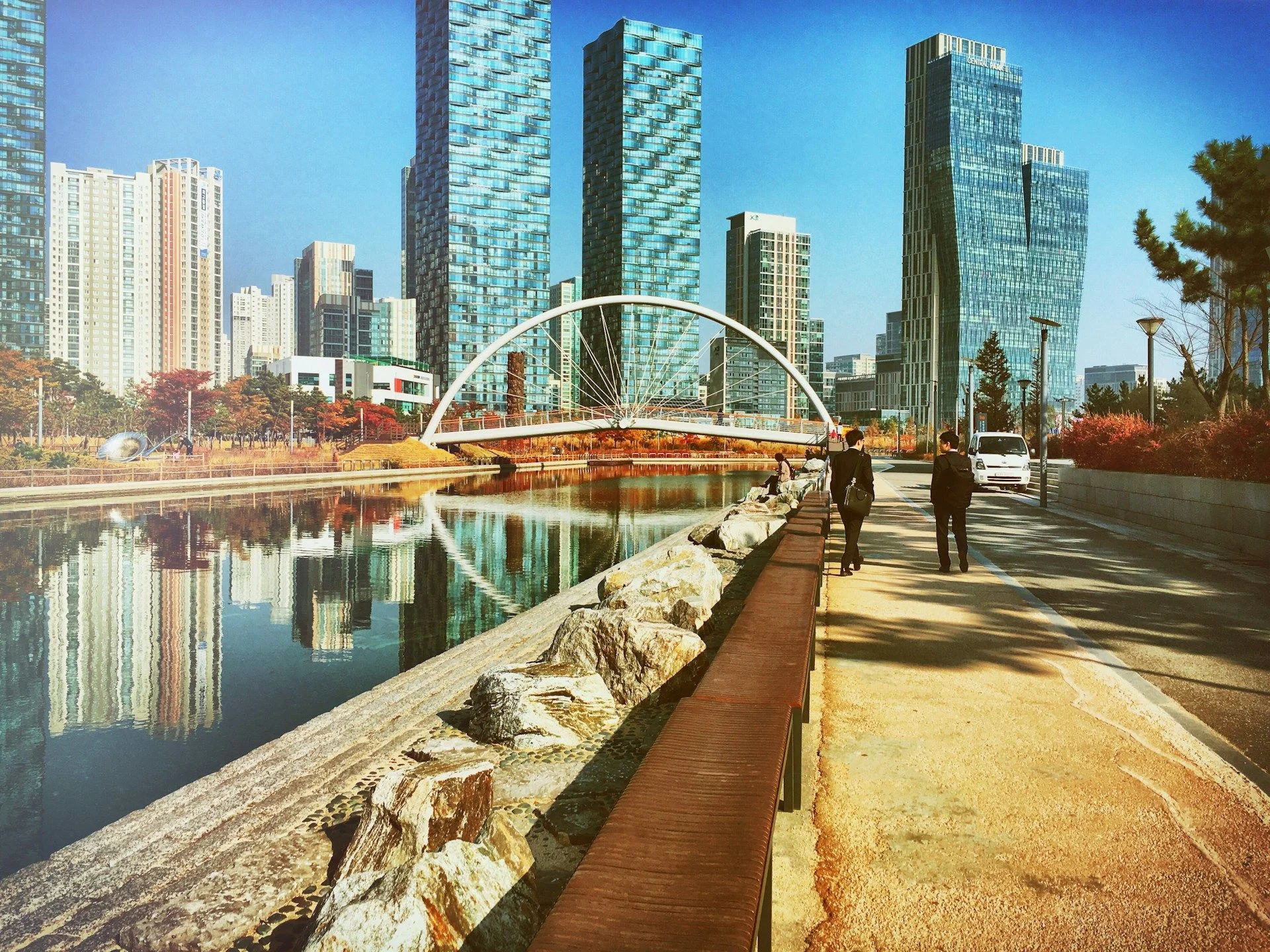Incheon Investment Real Estate – Opportunities for BuyersSuburban alternativewith urban benefits

Best offers
in Incheon
Benefits of investment in
South Korea real estate
High-tech urban living with property value stability
Major cities like Seoul offer strong infrastructure, public transport, and value retention in real estate.
Fast resale and rental demand in key areas
Districts near universities, business centers, and transit hubs show constant demand from renters and buyers.
Condos with security, amenities, and minimal upkeep
Modern apartments often include doorman service, gyms, and automated systems — ideal for remote owners.
High-tech urban living with property value stability
Major cities like Seoul offer strong infrastructure, public transport, and value retention in real estate.
Fast resale and rental demand in key areas
Districts near universities, business centers, and transit hubs show constant demand from renters and buyers.
Condos with security, amenities, and minimal upkeep
Modern apartments often include doorman service, gyms, and automated systems — ideal for remote owners.

Useful articles
and recommendations from experts
Real Estate in Incheon, South Korea
Why Invest in Incheon
Incheon is South Korea’s third-largest city and a major gateway to the country via Incheon International Airport. As part of the greater Seoul metropolitan area, Incheon benefits from its strategic coastal location, robust infrastructure, and economic development zones. The city is home to Songdo International Business District, a smart city project attracting global investors and multinationals. With affordable real estate relative to Seoul, government-driven urban projects, and excellent transport links, Incheon offers compelling opportunities for residential, commercial, and mixed-use property investment.
Property Types in Incheon
Incheon offers a wide range of real estate formats:
- High-rise apartments — Common in Songdo, Yeonsu, and Bupyeong, ranging from affordable to luxury units.
- Villas and low-rise residences — Found in older districts like Namdong and Dong-gu.
- Officetels — Multi-functional spaces suited for young professionals and small businesses, especially in downtown Incheon and near subway stations.
- Commercial buildings — In business zones like Songdo and Guwol-dong, including offices, cafes, and retail spaces.
- Development land — Especially in emerging zones such as Cheongna, Geomdan, and parts of Yeongjong Island.
Can Foreigners Buy Property in Incheon?
Yes, South Korea allows foreign individuals and companies to own real estate in Incheon:
- Freehold ownership is permitted for residential, commercial, and land assets.
- Property must be reported to the district office under the Foreigner's Land Acquisition Act.
- No restrictions on location, property type, or number of purchases, though anti-speculation taxes apply to multiple ownerships.
- Foreign investors must register transactions within 60 days of the contract signing.
Market Prices and Trends
Incheon offers value-for-money properties compared to Seoul:
- Songdo high-rise apartments: KRW 600 million – 1.5 billion (USD 460,000 – 1.1 million)
- Officetel in Bupyeong: KRW 200 – 500 million (USD 150,000 – 380,000)
- Villa in Dong-gu: KRW 300 – 700 million (USD 230,000 – 540,000)
- Commercial unit in Guwol-dong: KRW 800 million – 2.5 billion (USD 610,000 – 1.9 million)
- Development land in Geomdan: KRW 1 – 2.5 million/m² depending on zoning
Rental Market and Yields
Incheon supports a diverse tenant base:
- Expatriates and international staff — Particularly in Songdo, due to its global schools and corporate offices.
- University students — Around Incheon National University, Inha University, and Songdo Global Campus.
- Airport workers — Near Yeongjong Island and Unseo-dong.
- Wolse (monthly rent): Security deposit + fixed monthly payment.
- Jeonse (key deposit lease): Popular among locals, with 60–80% of property value paid upfront, no monthly rent.
- Officetel in Bupyeong: 4.5% – 6%
- Apartment in Songdo: 3% – 4%
- Retail unit in Guwol: 5% – 6.5%
Best Districts for Real Estate Investment
Leading areas in Incheon include:
- Songdo International Business District — High-tech zone with luxury residential towers, LEED-certified buildings, and expat-friendly amenities.
- Bupyeong-gu — Popular with students and commuters, well-connected via Seoul Metro Line 1.
- Guwol-dong (Namdong-gu) — Financial and retail hub with department stores and business offices.
- Yeongjong Island — Near Incheon Airport, ideal for logistics, hospitality, and short-term rental properties.
- Geomdan New Town — One of Incheon’s largest housing projects, targeted for affordable apartments and family homes.
How to Buy Property in Incheon
Steps for foreign buyers:
- Find a local real estate agent (Budongsan) fluent in English or use a global brokerage.
- Sign a purchase agreement with a 10% deposit.
- Submit acquisition report to the local Gu Office within 60 days of signing.
- Register the property with the Real Estate Registry Office.
- Pay acquisition tax and fees (typically 1.1% to 4.6%).
Taxes and Ongoing Costs
Owning property in Incheon entails:
- Acquisition tax: 1.1% to 3.5% (varies by use and property class)
- Capital gains tax: 6% to 45% depending on profit margin and holding period
- Property tax: Annual tax between 0.1% and 3.2% based on assessed value
- Rental income tax: 14% to 42% depending on declared income
- Maintenance fees: Ranges from KRW 70,000 to 250,000/month for apartments
Who Should Invest in Incheon?
Incheon appeals to:
- First-time foreign investors seeking entry-level assets with long-term growth.
- Business travelers and expats needing short- or long-term residences near Songdo or the airport.
- Buy-to-let investors focused on officetels and student apartments in well-connected zones.
- Commercial developers eyeing land and retail in Geomdan and Yeongjong Island.
Conclusion
Incheon is a strategic and affordable alternative to Seoul, offering modern infrastructure, international appeal, and access to government-backed smart city developments. With high-quality residential and commercial projects, legal transparency, and steady demand, the city provides a balanced real estate environment for local and international buyers alike. Whether for rental income, appreciation, or lifestyle, Incheon remains one of South Korea’s most promising property markets.
